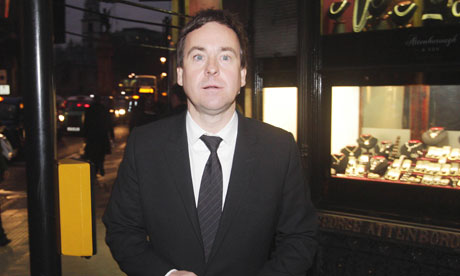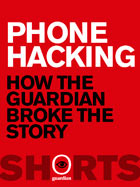Lord Justice Leveson and his inquiry team have been granted a unique privilege as he carries out the task handed to him by David Cameron and Nick Clegg. His courtroom will hear evidence from almost every national newspaper editor, several of whom have never submitted to public questioning before.
But on the evidence of Monday's tame session with Dominic Mohan, there seems little point. So gently was the Sun editor challenged that we learned more about the title's hit charity records than where to draw the ethical line in the "white heat" of the newsroom. This is not to say the inquiry into the "culture, practices, and ethics of the press" (to quote its mandate) ought be sheer hostile cross examination.
But Robert Jay was tougher on Piers Morgan, who last edited a paper in 2005, than on Mohan. The Sun editor, for example, was not asked what he thought about contempt of court, when the tabloid was fined £18,000 for just that over its reporting about Christopher Jefferies, arrested on suspicion of murdering Joanna Yeates but later released without charge; the Sun is appealing, but Jefferies might be forgiven for asking why he bothered to give evidence.
Nor was Mohan asked about a story in 2006 on Gordon Brown's son in which the Sun revealed the "cruel news" that the baby boy had cystic fibrosis. In 2011 Mohan's Sun said that the article was justified, because its source was a member of the public "whose family has also experienced cystic fibrosis" and the revelation was handled "sensitively and appropriately". Perhaps it was. But in an ethics inquiry Mohan might have been asked what he thought.
On phone hacking and so-called "dark arts" of journalism, perhaps the team were treading carefully because of police investigations. After getting Mohan to admit he did once thank Vodafone in 2003 for their "lack of security", at a set of "awards" for Fleet Street's finest cock-ups, Jay asked him hazily about "rumours" of phone hacking at the Sun. It was a long time ago, Mohan reasoned, and he couldn't recall "the specifics of the rumours". In response, Jay simply chose to move on. But if that may have been understandable, Jay could have pressed on principles - he might have asked a tabloid editor if phone hacking, or obtaining a person's medical details, their phone bills, or an ex-directory number, could ever be in the public interest.
Rupert Murdoch, meanwhile, was reduced to the role of a distant bystander. The media mogul "never tried to interfere" in Sun editorial policy. Jay asked did Murdoch support the "group decision" to switch support from Labour to Conservative back in 2009. "I believe he did. Yes," was the answer. If only Rupert Murdoch thought the same: he told a group of peers in September 2007 he was a "traditional proprietor" who had "editorial control" on "major issues – like which party to back in a general election".
Such an easy going inquiry will have Fleet Street critics wondering what is the point.












